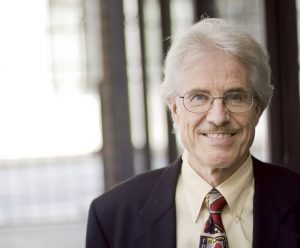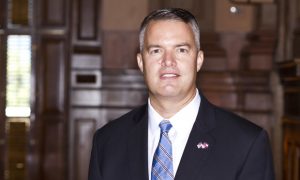The “right not to have children” is the central issue in a Georgia divorce appeal over frozen embryos

[ad_1]
Newnan lawyer Delia Crouch A Georgia court of appeals asked to consider the right to choose (or refuse) to reproduce on Wednesday, as a divorce case in the Southwest Metro Atlanta county took an unexpected turn into previously uncharted territory.
The Quetta District Court granted the appellant and ex-wife Laurie Smith rights to the fetus she conceived with the appellant-defendant and ex-husband Jonathan Smith. But Jonathan Smith does not want to have a child with his ex-wife. According to Crouch, “Although[Lori Smith]testified that she would take full responsibility[for the child]Georgia law does not allow a parent not to support their child.”
Crouch pointed out two errors in the lower court’s decision-making process:
- Non-implementation of the agreement concluded between the two parties, which provides for the disposal of the fetus through donation in the event of a dispute.
- The application of the balancing test between the interests of the two parties was wrong, as they failed to take into account the appellant’s right to avoid having children and fatherhood from a woman he was not married to.
Before the divorce, both parties froze the embryos together for future use. In doing so, the couple signed a contract specifying what to do with the embryos under certain circumstances.
According to Crouch, the language of the contract was such that if Smith disappeared, or became incapacitated, in the event of any unforeseen circumstances, or if Smith could not reach a decision on the fate of the stored embryos, they would be donated. In this context, the donated embryos are given to another couple who wish to become pregnant.
However, the attorney appellant David Webster When interpreted in the context of the contract Smith signed, divorce is not the same as a dispute and must be interpreted separately—in this case, by the trial court.
 David A. Webster. (image courtesy)
David A. Webster. (image courtesy)“(The contract) does not mention divorce, although this is a common and well-recognised example of non-acting jointly,” Webster said. “If the two parties had meant that the language in the (contract) includes the case in divorce, they would have said that and they would have said that.”
Judge Trenton Brown III He wondered if Webster believed the parties had anticipated the possibility of this kind of outcome. Webster replied that the main purpose of this section was to enumerate what to do in the event of unexpected results. He also indicated that the contract includes divorce in another paragraph, but he never linked it to the clause that specifies what must be done in the event of a dispute.
On the other hand, Crouch said, divorce fits in the context of not being able to disagree. Moreover, she said, the case law cited by the lower court concerned disputes of monetary value, rather than the “significant ramifications of forcing a person to fatherhood with a woman to whom he was not married” and “balancing the interest of both parties to have children or not to have children.”
 Judge E. Trenton Brown III, Georgia Court of Appeals. (image courtesy)
Judge E. Trenton Brown III, Georgia Court of Appeals. (image courtesy)Webster disagreed with this final concept raised by Crouch. Instead, he argued, the desire to be childless is a strong interest that requires a balanced test, but there is no right to childlessness.
Brown asked Crouch why the record did not support the lower court’s order. According to Crouch, during the trial, “the respondent argued vigorously and repeatedly that this was human life, that she should give her life, and that it was a forced abortion.
Crouch went on to say that “this was after (Dobbs v. Jackson), and therefore the arguments that were presented to the court were highly emotional and somewhat polarized. If you ask me why I think the judge “ruled this way,” I don’t think any Supreme Court justice would want to be on the front page of the paper saying, “You have robbed this woman’s last best chance.”
In addition to Brown, the case has been heard before Chief Justice Anne Elizabeth Barnesand Judge Todd Markle. The original case was headed by the judge Travis Sacreson In Quetta District High Court, No. 22CV45. Additional counsel included John Cunningham for the respondent and Desiree Duke for the respondent.
The case is Jonathan Smith vs. Laurie Smith, No. A23A0896in the Georgia Court of Appeals.
https://drive.google.com/file/d/1W-2YuXF3zDZRJcndoyu3JIeK2CW_6Znz/view?usp=sharing
[ad_2]
Source link





